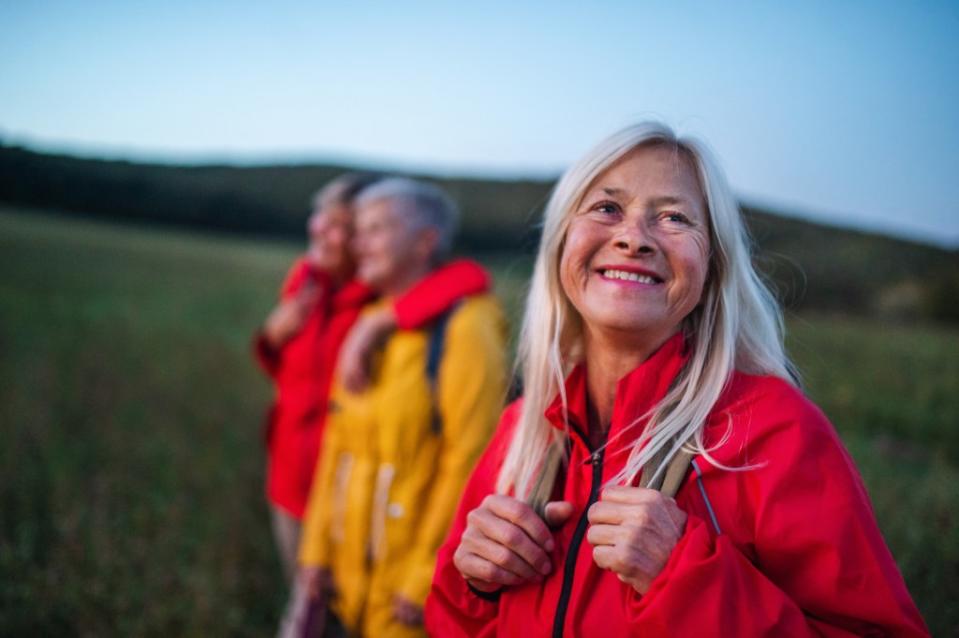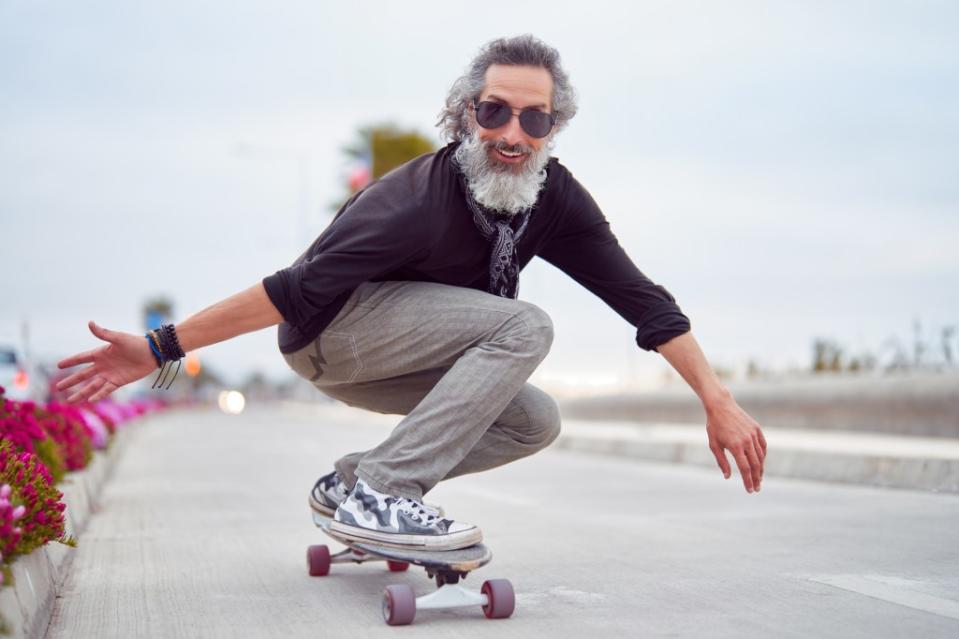9 ways to live to 100 and have fun while doing it, according to longevity experts

Ever wish happy hour could last a lifetime? Say no more.
It’s just one of the rules, known as the “Power Nine” according to National Geographic’s Dan Buettner, that residents of Blue Zones — regions where the average life expectancy is higher than the rest of the world — swear by, in addition to a plant-based diet and an emphasis on friendship.
Regions in Italy, Japan and Greece are just some of the world’s Blue Zones, where people are ten times more likely to live to 100 than the average American.
While we’re often told what diets and habits are the key to healthy aging, take it from these centenarians whose remarkablylong and vigorous lives speak for themselves.
Go to happy hour
Despite alcohol’s bad rap, a glass of wine is welcomed in the Blue Zones, but not for the reason you’d think.
Sure, some graceful agers swear by a daily dose of pinot to keep them young, but these centenarians are more interested in the community accompanied by grabbing a drink with others. And, unlike booze, you can never have too much of a good time with friends.
“In longevity cultures, moderate alcohol consumption often occurs in a social context, emphasizing the role of community and celebration,” Dr. Kien Vuu, founder of VUU MD Performance and Longevity, told GQ.
“The key might lie more in the positive social interactions and less in the alcohol itself. Positive relationships contribute to mental and emotional well-being.”

Take a load off
Stress negatively impacts health — not only does it accelerate aging, but it can also hinder the immune system and impact the gut. While stress is unavoidable, experts recommend taking time to relax by doing some deep breathing when you feel tense.
“The more you practice this, the better it gets,” integrative medicine specialist Dr. Michelle Loy told GQ, advising those who feel stressed to take a deep breath in and hold it “for a few seconds.”
“It can be done anywhere, anytime, and doesn’t interact with any medications or supplements.”
Eat plant-based
Experts have long recommended consuming less red meat, which has been linked to negative health outcomes such as heart disease, diabetes, cancer and more. But Blue Zone researchers have concluded that a plant-based diet that relies on vegetable-based proteins — think: soy, beans, lentils — plays a vital role in longevity.
Buettner once said that people interested in cooking health-conscious meals akin to long-living groups should aim to master just “four or five meals” that are “whole food” and “plant-based” — no need for an exhaustive index of recipes. If you do that, “you’re on your way to eating to 100,” he said.
The 80% rule
You’ve heard of the 80/20 rule — eating nutritious items most of the time, while reserving that extra 20% for indulgences — but those in the Blue Zone abide by a different guideline: eating to only 80% fullness.
Those regions’ centenarians tend to eat smaller meals in the early evenings and then do not consume anything else afterward, which may prove difficult for snackaholic Americans. Dr. Loy recommends putting the rest of your meal away in a Tupperware or to-go box “when you are starting to feel full.”

Move more
It’s no surprise that movement and exercise contribute to a healthier life, but Americans, for one, tend to sit for nearly one-third of their day. And, since a primarily sedentary lifestyle has been linked to negative health impacts, it should be no shock that centenarians are active people.
For busy bees, however, getting in an hour or 90-minute workout isn’t feasible — but fret not, studies have shown the benefits of mini-movement, such as taking breaks for walks throughout the day or even 22 minutes of exercise at once. Vuu recommends seated stretches or taking the stairs instead of the elevator to get in some extra movement.
Find your friends
Following the post-covid loneliness epidemic, its evident that humans need connection and interaction.
“Love and positive social interactions have been shown to release oxytocin, known as the ‘love hormone,’ which plays a role in bonding and reducing stress levels,” Vuu told GQ. “So, loving, supportive relationships can lead to long-term improvements in emotional state and physical health.”

Prioritize loved ones
In that same vein, spending more time with family and loved ones is key to living a long life. According to GQ, those who lived the longest often resided near parents or grandparents, had a life partner and spent intentional time with their kids, if they had any.
Build a community
Everyone wants to feel like they belong — for long-living centenarians, that means taking an interest in spirituality or personal wellness. Attending a religious service just four times per month (think: every Sunday) could add as much as 14 years on your life, according to Buettner, and even just focusing on personal wellbeing and joining some sort of club or local gym can deliver the same sense of community.
Have a purpose
Commonly referred to as your “why,” finding your purpose in life is important for life expectancy.
“It may take some soul-searching, but it is worth taking the time to engage in this personal quest, as when you find your Ikigai, or several, it brings clarity to how you live your life,” Loy told GQ, referring to the Japanese concept of Ikigai, which calls on people to discover their calling.


